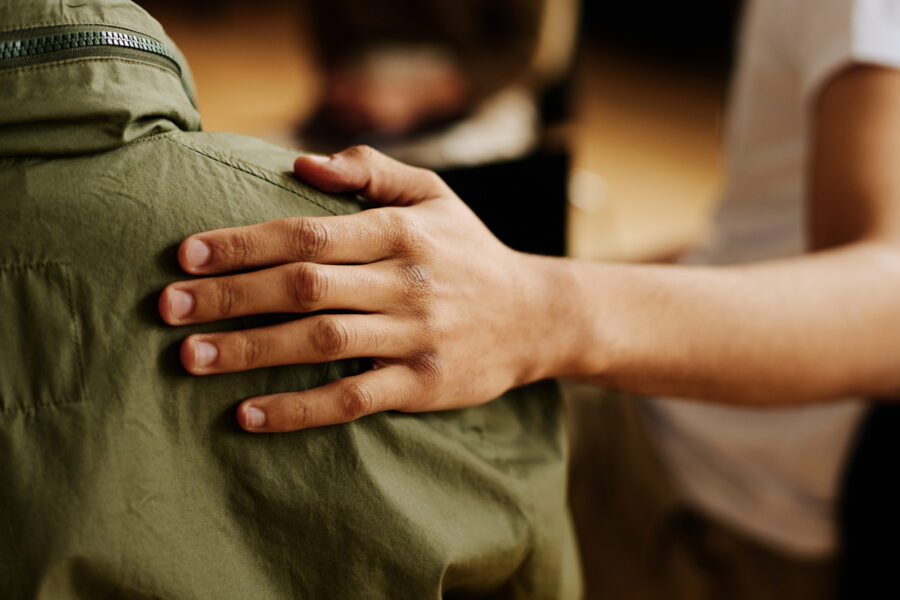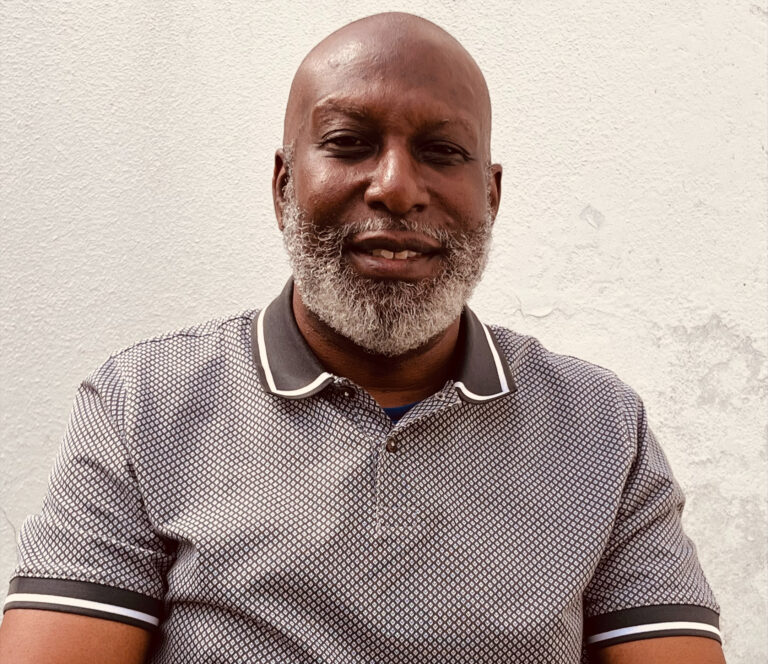Tyrone McHardy is a therapist and founding member at MASC, which offers private and group counselling by men for men ages 13 and up. Though research shows that men are significantly less likely to seek help for mental health difficulties, McHardy and the team at MASC (short for masculine) are helping to change that.
“Traditionally, more women have availed themselves to therapy than men, but I think the trend is changing and the stigma is diminishing,” says McHardy, who has been providing mental health therapy since 2009. “Men are feeling more comfortable speaking about their emotions and coming to therapy.”
According to the Bermuda Hospitals Board, many men associate having a mental illness as a sign of weakness, yet even the strongest men have a 1 in 4 chance of developing a mental health issue. The cheeky tagline on the MASC website is just part of a larger movement to help Bermudians erase this idea. “As it turns out,” the MASC website reads, “there are worse feelings than being kicked in the crotch.”
“Men experience distress and unease, just like everyone else” says McHardy, noting that men can also experience challenges navigating workplace issues and personal relationships. “If they keep their emotions bottled up inside it comes out in maladaptive ways.” This can include unwarranted aggression or making ill-informed decisions. “It’s not beneficial for their wellbeing and their relationships.”
Signs of mental distress can include sleeplessness, loss of appetite, over thinking, being indecisive or not enjoying hobbies that previously brought pleasure. It can lead to depression, anxiety and even physical conditions. They all indicate it’s time to speak to a professional. “Men shouldn’t be worried about how they’ll be perceived. But experiencing these symptoms mean it’s an ideal time to speak to someone,” says McHardy.
 Therapy doesn’t have to be long-term. It can be short term or even a one-off appointment. But it is an opportunity to have a conversation, to have thought processes challenged and to examine behaviour and actions. Learning to navigate these feelings is beneficial for everyone, and men shouldn’t feel discouraged, deterred or shamed.
Therapy doesn’t have to be long-term. It can be short term or even a one-off appointment. But it is an opportunity to have a conversation, to have thought processes challenged and to examine behaviour and actions. Learning to navigate these feelings is beneficial for everyone, and men shouldn’t feel discouraged, deterred or shamed.
McHardy stresses that talk-therapy—in which clients sit down and speak to a therapist one-on-one or discuss issues in a safe group therapy setting—isn’t the only positive thing men can do to improve or manage their mental health. “Even talking to someone you trust can give men another perspective,” he says. “Exercising can also really help— everything from walking to weight lifting. Even meditating or mindfulness as an exercise can be very helpful.”
Experts also stress the importance of eating a well-balanced diet and getting enough sleep, all of which can improve physical and mental health so people can better cope with all the challenges that come with day-to-day life. Says McHardy, “MASC is a place in which men can avail themselves to therapy and to this process that can help with not just mental health but all health.”
These days, rather than dividing mental health into silos like mental, physical, emotional or financial health, experts agree it’s important to view mental health in a holistic way. “It’s all integrated—it’s not separate,” says McHardy. “It’s about all these parts working in harmonious nature with each other. It’s important that we take care all of these parts of ourselves as a whole.”
Counselling can help deal with issues like anger management, stress, fatherhood, intimacy, family dynamics, marriage or divorce, anger and depression, grief, loss, domestic violence and even substance abuse and addiction.
The first step in the process of improving mental health is to acknowledge that help is needed. Then, the key is to take the next step and the next to move forward in the wellness journey. Calling a trusted friend or relative, going to your primary care physician, getting recommendations for professional help, following through on that appointment and focussing on the holistic aspect of overall health flow from there.
Many resources and apps are available to assist men on their journey. Some focus on healthy habits like exercise, while others offer guided meditation from the comfort of home. No matter which you choose, “forming good habits enables men to create a better foundation so they can respond to whatever life throws his way,” McHardy explains. “I am aware there can be reticence among some men when it comes to engaging in therapeutic services. However, I am confident that, once these same men decide to enter the process, they will invariably benefit from it.”
For more information, visit mascbda.com or call 441 (601-6272).

